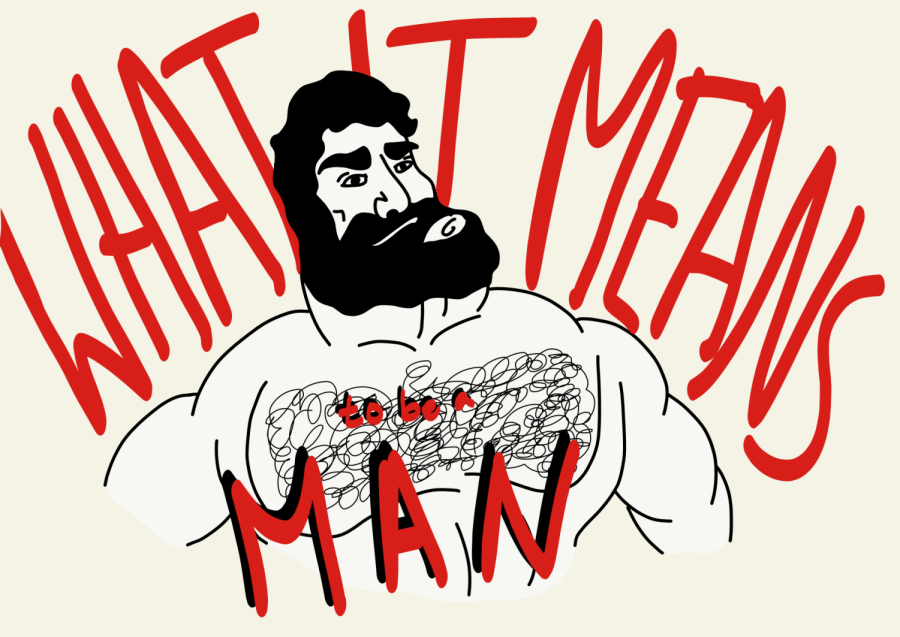Big muscles, a hairy chest, and a strong jawline: All of which are characteristics of a masculine figure in society’s typical standards. These ideals have inspired and shaped young individuals into what they are today—whether that be in a good or bad way. With emerging concepts of toxic masculinity and “mansplaining,” many are left to wonder what it really means to be a man, and if anything can define it at all.
A number of opinions come to light when the topic is brought about. The Guardian interviewed several different males, each with different ideas of what manhood really equates to. The results they found include the following: one with “money and muscles,” someone who shows respect to everyone, someone who is caring and considerate, and even someone who simply is considered “powerful.”
The perspective of each of these individuals has been shaped and molded through a lifetime of experience: Each experience, whether that be the household one grew up in or bullying from middle school, influences what men think it means to be a man.
Over the summer, a couple of people and I were helping a close friend by moving some furniture. About halfway through, I saw that one of the girls was struggling to move a couch. So, I went over to help her out. After exchanging a smile, I then proceeded to help her move the couch.
Almost immediately, she started to laugh and soon began to criticize me. “I just love it when males feel the need to mansplain everything for me,” she said. I was speechless. Did she not want my help? Was I not being a gentlemen? This was how my parents raised me to behave, and I was taken aback when my kindness was interpreted as something other than my true intentions.
The concepts of mansplaining and toxic masculinity are relatively easy to understand. According to The New York Times, “the term mansplaining — a portmanteau of “explain” and ‘man’ — entered popular usage after the author and historian Rebecca Solnit published a 2008 essay titled “Men Explain Things to Me.”” Furthermore, it went on to say that the term explains a certain kind of condescension to explain topics to women that they already understand- like how to move a couch.
Toxic masculinity is an umbrella term, with mansplaining falling underneath it. According to ABC Life, “The term toxic masculinity has become a catch-all to describe male feelings of entitlement, anger and vulnerability, and the urge to dominate and intimidate, through either overt or covert means.”
Many often falsely interpret this concept, wrongly believing any act of competitive or aggressive interaction between men equates to toxic masculinity. Multiple times I have witnessed girls misinterpret playful fighting, friendly competition, and teasing banter among males for toxic masculinity. On some occasions, I have even had girls assume that I am a “douchebag” simply because I mentioned that I worked out and took care of my body.
Yet despite this criticism, generally many women still expect a strong and fierce man to take care of them. According to The Washington Post, “Women, when asked in a study to judge photos of men’s bodies, rated the strongest men as the most attractive. Height and leanness were appealing attributes, too, but strength played an outsizing role in the ratings of a man’s torso, per a report published Tuesday in the Proceedings of the Royal Society B.”
With societies shifting viewpoints on a plethora of issues, manhood is manhood. Regardless of how you may interpret it, manhood in your eyes could be completely different in someone else’s. For me, a real man is a strong, independent, caring, respectful individual that, despite what he may think, can accept that he doesn’t have the only opinion in the world. Plus, he’s also great at moving couches.





























































